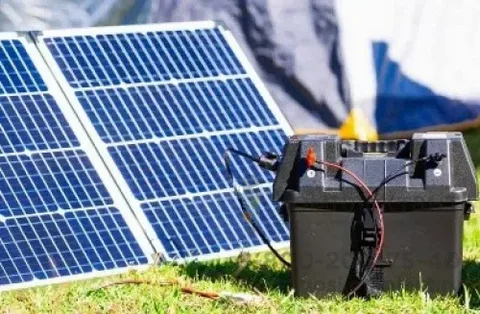As solar energy becomes increasingly popular, more homeowners and businesses are looking for ways to store the energy they generate. One of the most effective solutions is a solar battery. However, with so many options available, selecting the right one can be a challenge. This article serves as The Ultimate Guide to Choosing the Right Solar Battery, helping you understand key features, battery types, and how to make the most informed decision.
Why You Need a Solar Battery
A solar battery stores excess energy produced by your solar panels during the day. This stored energy can then be used during the night or on cloudy days, increasing your energy independence and reducing your reliance on the grid. With the right solar battery, you can also save more on electricity bills and ensure a consistent power supply even during outages.
Types of Solar Batteries
When diving into The Ultimate Guide to Choosing the Right Solar Battery, it’s essential to understand the different types available:
1. Lead-Acid Batteries
These are the most affordable option and have been used for decades. However, they typically have a shorter lifespan and lower depth of discharge (DoD) compared to modern alternatives.
2. Lithium-Ion Batteries
Currently the most popular choice for residential solar systems, lithium-ion batteries offer high efficiency, a long lifespan, and require less maintenance.
3. Saltwater Batteries
A newer and more environmentally friendly option, saltwater batteries do not contain heavy metals and are easier to recycle. However, they are less common and may not be as efficient.
Key Factors to Consider
To truly benefit from The Ultimate Guide to Choosing the Right Solar Battery, consider these important factors when making your selection:
Capacity
This refers to how much energy the battery can store, measured in kilowatt-hours (kWh). Choose a capacity that matches your energy usage needs.
Depth of Discharge (DoD)
A higher DoD means you can use more of the battery’s total capacity without degrading its life. Aim for a battery with a DoD of 80% or more.
Efficiency
Efficiency reflects how much energy you can use from what is stored. Lithium-ion batteries typically have an efficiency rate of 90% or higher.
Lifespan and Warranty
Battery life is measured in cycles. A good battery should last 5–15 years. Always check the manufacturer’s warranty as it can be an indicator of quality.
Cost vs. Value
While upfront costs can be high, a solar battery should be seen as a long-term investment. The most expensive option isn’t always the best; evaluate the total value over time, including savings, maintenance costs, and longevity.
Final Thoughts
Choosing a solar battery isn’t a one-size-fits-all decision. By understanding the basics covered in The Ultimate Guide to Choosing the Right Solar Battery, you’ll be better equipped to select a system that fits your energy goals and budget. Whether you’re prioritizing affordability, performance, or sustainability, making an informed decision ensures you’ll get the best return on your investment.


